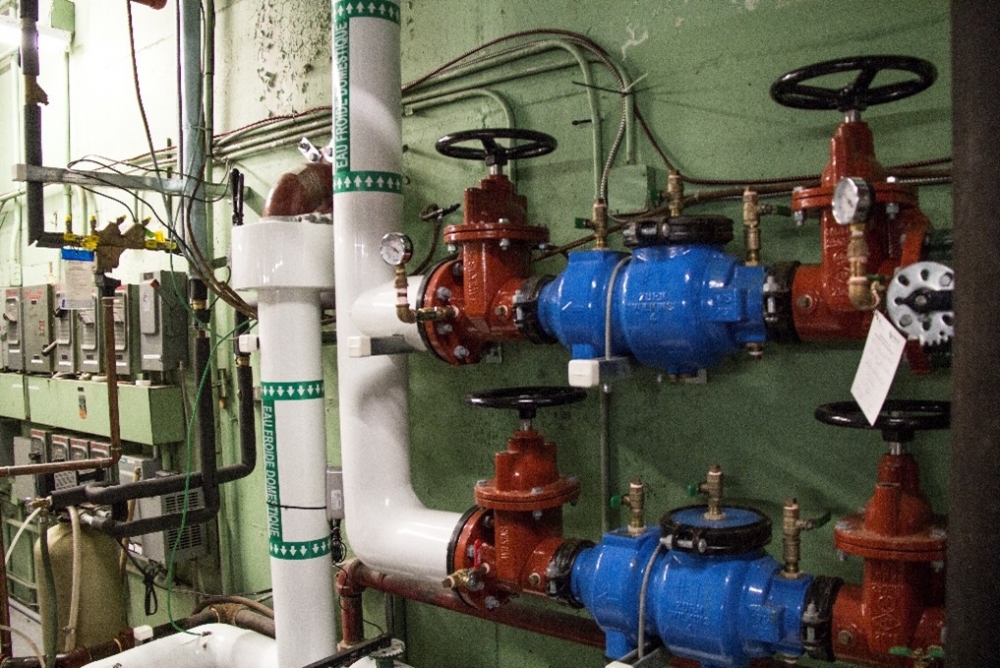
Cross-connections can be found in all buildings, including schools, hospitals, factories, office buildings, condominium and even in a single-family residence. Cross-connections are the cause of contamination of drinking water inside a building.
CSA B64.10-17 dictates the measures to be taken to prevent the contamination of drinking water. According to this standard, a cross-connection is an "existing or potential connection connecting a drinking water distribution system to a source of pollution or contamination."
All applications that connect to the potable water distribution system and use, for example, chemicals or disinfectants generate cross-connections that could corrupt the water to varying degrees. A hose connected to a faucet and immersed in a boiler containing toxic products thus becomes a potentially risky cross-connection. Common applications in institutional, commercial, and industrial settings include:
Contamination occurs when there is a reversal of the direction of water flow in the drinking water distribution system, which is called backflow. When there is a backflow, toxic elements can then end up in the drinking water and affect the health of the users of the building, or even other buildings in the area. For this reason, building owners are required by law to protect any risky cross-connections, for example, by installing backflow prevention devices.
Only a professional can identify risky cross-connections on a potable water distribution network. The engineering of cross connections is a very advanced discipline that comes under the mechanics of the building, and which aim is to preserve drinking water. Contact our experts for a cross-connection engineering analysis in your buildings.
We use cookies
Respecting your privacy matters to us. We use cookies to personalize our content and facilitate your digital experience. Some cookies may be collected with your consent.
Essential
Essential cookies help make a website usable by enabling basic functions such as page navigation and access to secure areas of the website. The website cannot function properly without these cookies.
Performance
These cookies enable us to analyze navigation on our sites and improve their operation.
Customization
Preference cookies enable a website to remember information that modifies the behavior or appearance of the site, such as your preferred language or the region you are in.
Targeted advertising
These cookies help us limit the number of times you see an advertisement, personalize our offers and services according to your centers of interest, measure the effectiveness of an advertising campaign, and so on. They may be shared with our partners.
We use cookies
Respecting your privacy matters to us. We use cookies to personalize our content and facilitate your digital experience. Some cookies may be collected with your consent.